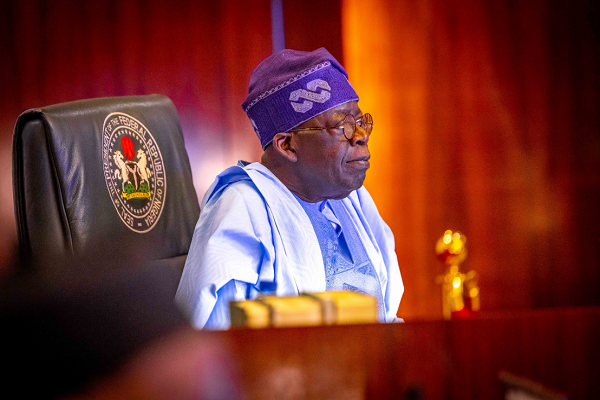- Muda Yusuf, an expert in economics and policy formulation, has condemned the Bola Ahmed Tinubu administration’s economic policies as contradictory
- The government is planning some palliatives for the masses as a result of the removal of fuel subsidies
- Yusuf called on government agencies to key into Tinubu’s plans and advised all its agencies to put a hold on any process of reviewing any fees, charges, taxes.
Muda Yusuf, an expert in economics and policy formulation, has condemned the Bola Ahmed Tinubu administration’s economic policies as contradictory.
Yusuf, a former Director General of the Lagos State Chamber of Commerce and Industry (LCCI), stated that the government must devise a comprehensive strategy to revitalise the economy.
Speaking on Channels Television’s Sunday Politics, the former LCCI boss said the government was planning some palliatives for the masses as a result of the removal of fuel subsidies. Still, the same government was also planning tax and tariff increases.
We are talking about palliatives and the DisCos are coming up with proposals to increase the electricity tariff. Meanwhile, the palliatives have not even come. So, all of these things don’t add up. We must be sure that we are facing the same direction, he said.
While noting that the President had acknowledged the suffering of the masses, Yusuf called on government agencies to key into Tinubu’s plans.
I think the government should advise all its agencies to put a hold on any process of reviewing any fees. Charges, taxes, all these things should be frozen for now. I’m talking about the increase and what the customs and the central bank have done should be reversed.
We can not absorb 80 per cent in import duty across the board. That is not sustainable, the shock on the system will be too much.
In terms of transportation, we need to cut down import duty on these mass transit buses so that employers of labour, the state government, the local government, and the federal government will be able to afford these buses. Rather than reducing the import duty, the Customs are increasing the import duty more. This is a complete contradiction of what we are expecting.
Policy has a major role to play in all of this conversation. And policy is within the domain of the Federal Government. We need the right kind of palliatives. I am talking now about how we can use fiscal policies to cushion the effects of all these hardships.
I’m looking at issues of taxation for instance. How we can reduce taxes in some very critical sectors of the economy…What fiscal policies can we put in place to reduce the pressure on investors in these sectors so that they can deliver quality health, quality education at a more affordable rate?
The issue of taxation is also very important. Reforming the tax system is not only about revenue, it’s also about making it easy for the vulnerable segment to be able to survive and cope with the current challenges, Yusuf, the Director of Centre for the Promotion of private enterprise, added.
